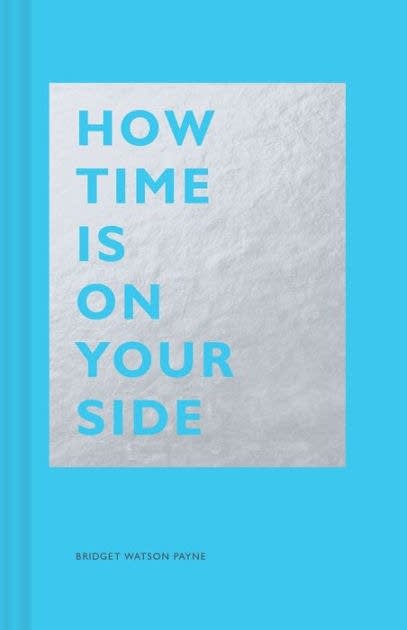A Beautiful World: If time ticks you off, make it your friend
Go Deeper.
Create an account or log in to save stories.
Like this?
Thanks for liking this story! We have added it to a list of your favorite stories.

According to author and artist Bridget Watson Payne, there really is enough time to do it all: the passion projects, the to-do list, or simply doing nothing. The trick is knowing how to look for it. Time: it's not the enemy; it's a friend.
“As long as we set ourselves up with an adversarial relationship to the amount of time we have in the day,” Watson Payne said, “we're kind of setting ourselves up for failure and setting ourselves up to be pretty miserable.”
Her new book, “How Time is on Your Side,” is part handbook and part philosophy guide, which work together to help reframe your relationship with time. She said the culture of constantly trying to pack more and more into your day simply leads to a toxic, harried, overworked world.
Instead, she asked, “How do we start thinking about time in a different way, to bring more lightness and more joy into our lives?”
Turn Up Your Support
MPR News helps you turn down the noise and build shared understanding. Turn up your support for this public resource and keep trusted journalism accessible to all.
Achieving your goals isn't as far-fetched as it seems. Watson Payne encourages readers to nurture their inner creative, spiritual, emotional and mental lives. Some of her tips include using your calendar to its full advantage, doing mental work in the morning and physical work in the afternoon, and putting your big goals on your to-do list.
She quoted the writer Tara Rodden Robinson: “I came to realize that the entire field of personal productivity is rooted in this lie of scarcity. But the truth is, time is an infinitely renewable and exhaustively abundant resource.”
When you first read these words, you might want to punch someone in the face. Time isn't abundant and infinite, and Watson Payne understands this.
“We all only get so many hours, so many days, and months, and years,” she said. “Then we die. The fact that we all, without exception, are going to drop dead someday is a big part of what drives us to race around in circles, trying to do everything all at once, all the time.”

But she said time is also a big part of what makes our lives, and the years, and the months, and the weeks, and the days, and the hours and the teeny tiny fulsome minutes in them so deeply, achingly, heartbreakingly precious and beautiful.
“If we weren't ever going to croak, could we ever know how good we have it, how miraculous existence is compared to nonexistence?” she asked. “And this is where we start slowly at first and then with increasing speed and momentum to grasp Robinson's point, because we have so, so, so much, maybe sometimes too much, we have abundance in all directions. And when did a scarcity mindset ever get anyone anywhere except straight to miserable? Thinking of time as the enemy, as a scarce, slippery, mean and meager little thing dribbling away through our fingers, is a recipe for unhappiness. Trusting that time can be our friend, that we have the tools and the resources and the smarts and the bigness of heart to choose to view time as abundant — well, that is a recipe for plenty.”
She said making friends with time is not mind over matter. It’s a choice.
“It's a commitment,” she said. “It's faith in our own capabilities. And in a way, it's faith in the Earth. Transit around the sun. Days will pass. There is nothing we can do about that. Indeed, given the alternative, there's no way we'd want to do anything about that stuff. We'll need to get done. And again, given the alternative, we wouldn't want to change that either. How we choose to spend our days, how we choose to spend our spare quarter hours, what we decide to prioritize, who we decide to prioritize, how we view this maelstrom of a world and our place in it — that’s up to us.”
Dear reader,
Political debates with family or friends can get heated. But what if there was a way to handle them better?
You can learn how to have civil political conversations with our new e-book!
Download our free e-book, Talking Sense: Have Hard Political Conversations, Better, and learn how to talk without the tension.



